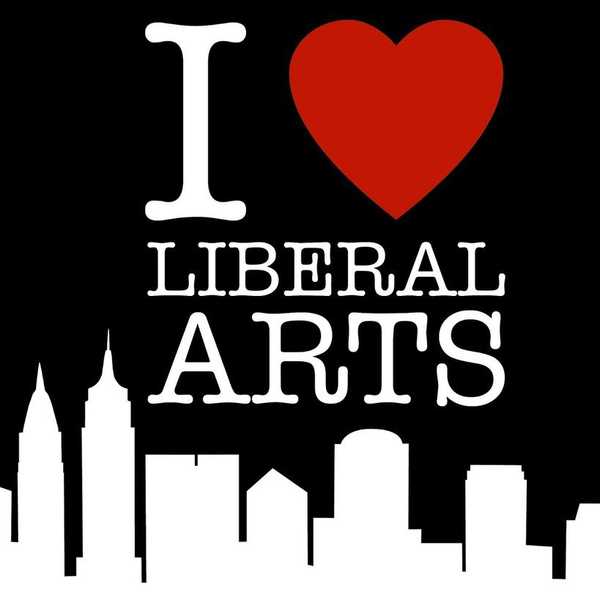I was recently in New York City for Thanksgiving. For years, my Mom had dreamt of watching the Macy’s Thanksgiving Day Parade in person, and so, after a year of saving up money, my Father decided that my family would travel up there. But the thing that struck us most was not the parade, which, to be honest, was greatly unimpressive. It was the larger-than-life size of the place that really grabbed our attention.
Times Square looks smaller in movies than in real life. The subway system weaves in and out of stations like a loosely-tangled wicker chair. Lady Liberty silently guards the citizens and looks off in reminiscent thought of that fateful day on 9/11. Where the World Trade Centers fell, construction workers have almost completed Freedom Tower, which stretches 1,776 feet tall and looms over the craters where the names of the fallen are engraved in black granite.
It reminded me of history itself. Indeed, New York City contains more history in its loose gravel than most cities do in their whole skyline. And yet, though NYC has been in existence for more than 250 years, it’s possible that its existence has not yet reached its halfway point. If history itself is a skyscraper, it is possible that we are only standing 60 floors up in a half-constructed, 120-story building. What is completed still casts its shadow over humanity. Everything that has happened in the past 250 years of this city’s existence influences the direction that it will continue to grow for the next 250.
As with every historical moment, past and future balance on a fulcrum known as the present. Each successive moment is equally important in regards to changing our collective future for the better. As such, how we educate our young is never more important than it is in the present. Inspired by my experiences in New York City, I felt compelled to give three reasons why I believe that homeschoolers should consider a classical education for their children:
1. Classical Education Puts the Present in Perspective
A classical education is defined as an education in which the student is taught according to classical traditions, such as learning via Socratic method or learning from the teachings of ancient Greece, Ancient Rome, etc. When I was in high school, and even in college, my teachers taught me that there were two major roots in the tree of world history: the Greco-Roman root and the Judeo-Christian root. Unsurprisingly, these two intertwine, and, as was the case in ancient Rome, sometimes one chokes out the other. A brief study of history illuminates a fact that most people know, but rarely state: history flows smoothly. Everything that has happened logically flows out of the historical events that preceded it.
That, of course, contains some exceptions, such as the Nordic invasions. But finding the exceptions is part of the joy of a classical education. Viewing history as a continuously evolving organism or a constantly constructed skyscraper helps the student to see how America got where they are today. For example, teachers don’t usually teach their students that the American forefathers quoted the Apostle Paul more than any other author as they were meeting to format the country’s Constitution.
Teachers don’t generally teach that the American founders relied heavily on Cato as a historical precedent. In fact, while Washington was trapped with the American army in Valley Forge, it was Joseph Addison’s play "Cato" that he used to galvanize his troops. It’s not a secret that Cato was Washington’s favorite historical figure, mostly because Washington viewed himself as a Cato figure.
A classical education puts modern day America into perspective, as well as the things that inspired those who founded America. Homer leads to Sophocles leads to Socrates leads to Rome leads to Cato and Cicero leads to Augustine, and so on and so forth. The more that students understand where America has come from, the more easily they will understand what to do to improve America’s future for themselves and their posterity.
2. Classical Education Offers a Better Understanding of Language
If you’re not a millennial, chances are you probably don’t understand millennial slang. If you are a millennial, there’s still a large chance you don’t understand your own generation’s slang. Conglomerated segments of letters like “bae,” “lit,” and “baller,” have become imprecise husks of what used to be known as words. It appears that the second law of thermodynamics — that all things in a closed system are striving towards a state of disorder — carries over to a culture’s linguistic tendencies as well.
Classical education, however, seeks to rectify that by focusing on Greek and Latin as guides to understand the English language. Both Latin and Greek require the students to be very precise in how they order and end their words. Each word-ending has a different use in any given sentence, so that the functions of individual words become extremely important. Placing a macron over an “a” ending of a Latin word, for example, moves a noun from being nominative (“the woman sat”) to being ablative (“she sat by the woman”).
All those grammar terms that students hated in English class suddenly become very important in Latin and Greek. A couple years of these languages will cure any student of loose linguistics. Classical languages mold their students’ minds to think more precisely. Ever since I took four years of Latin, whenever I speak in the subjunctive case, each subjunctive clause I speak begins with “so that.” That might not seem like a lot, but, if you haven’t taken Latin or Greek, you will just have to take my word that it’s a complete paradigm shift. Ladies and gentlemen, that’s the type of effect Latin and Greek have on students. Latin and Greek: shifting philological paradigms since 750 B.C.
3. Classical Education Offers a More Thorough Approach to Each Subject
Classical education does not distinguish between subjects. Not truly, anyways. Democritus and Leucippus, the two Greek philosophers most famous for being the original postulators of atomic theory, informed their science from their worldview, and not their worldview from their science. That is, atomic theory is a philosophical theory and not a scientific one. A quick reading of Aristotle betrays a similar type of reasoning. Aristotle’s "Physics" includes a lot of discussion of the metaphysical, just as his "Metaphysics" includes a lot of discussion on the physical. Pythagorean math theory grew from a worldview that number was the only truth.
And so, in the first 500 years of true, humanistic thought, thinkers did not distinguish between science, math, culture, and philosophy. In fact, the addition of different subjects is a fairly recent invention in the grand scheme of human history. In Greek universities, there were no majors or minors. There was simply education.
Nowadays, historically-minded individuals can recall a man named Thomas Young, who, among other things, formulated Young’s Modulus, which is important in the study of elasticity, discovered astigmatism, was an early pioneer into quantum theory, and helped translate the Rosetta Stone. He became known as “The Last Man to Know Everything” for his contributions towards everything including language, music, and various different sciences.
To the modern student, such diverse knowledge is unheard of. Thomas Young stands as a shining beacon to modernists who wish that they could have that kind of knowledge. What many people fail to realize is that the diversity of Young’s knowledge was not unique to students less than a century before him. A classical education teaches that all of these subjects are really part of the same pool of learning.
During college, I remember going through an extreme classical education, watching as various strands of intellectual thought intersected here and there through the world's timeline. At the time, I didn't understand why all the things I learned were important. It wasn't until much later that I returned to my professor in college and told him that his classical curriculum was incredibly well thought out. He responded by saying that all he did was train his students how to learn. The connections that we drew from what we learned were not things that he taught us, but that we observed on our own, through studying Latin, Greek, history, math, science and philosophy.
There may not be another Thomas Young in our lifetimes, but there’s no reason we can’t create a culture from which the next Thomas Young may sprout.
























